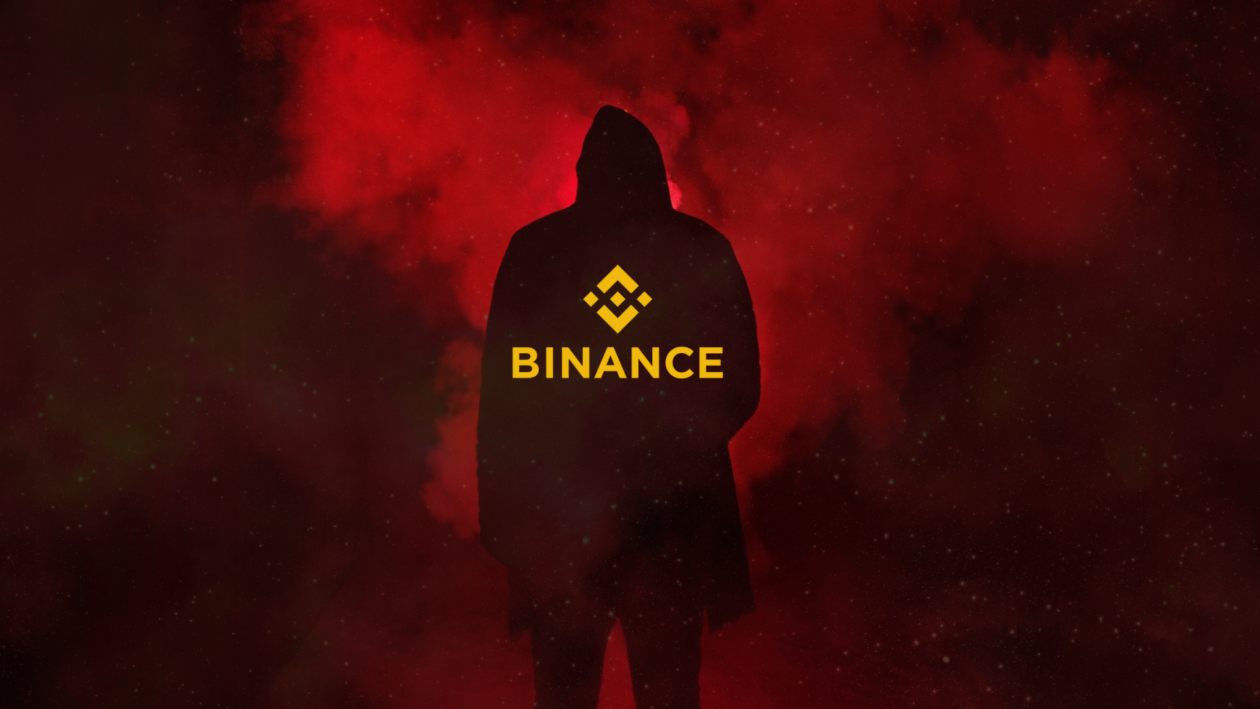In this issue
- Binance: Heist halted
- Nobel Prize: Quantum of menace
- Huobi: Under new management
From the editor’s desk
Dear Reader,
Technology is often described in terms of an arms race. It’s an accurate assessment that’s no less true in the cryptocurrency industry than it is in any other, and to which recent events attest.
Binance, the world’s biggest crypto exchange, may be winning that race in terms of its sheer heft in the market, but even the behemoth that founder Changpeng Zhao built may lose the occasional battle. One such setback came last week in the form of a hack that saw the exchange hemorrhage US$100 million before the bleeding could be staunched.
It could have been worse. More than US$570 million was on the line at one point, but Binance’s fleet-footed response limited the damage, and the exchange — an ambitious choice of target for hackers, given its resources and sophistication — has already dusted itself off and moved on.
A potentially existential threat to crypto’s future surfaced last week, however, when the Nobel Prize for physics was awarded to a trio of scientists for their work in what The New York Times memorably described in a headline as “quantum weirdness.” For those in the know, that has ramifications for quantum computing, whose possible peril to crypto comes from the fact that — hypothetically, at least — it could unravel the encryption that blockchains rely on for their security.
The likelihood that this will happen remains a distant possibility. But it’s worth remembering that possibilities are, by definition, things that can and sometimes do happen.
All of which serves to underline the built-in vulnerability of not just blockchain-based technologies, but all technologies, to the apparently endless ingenuity that spawned the crypto phenomenon in the first place.
Tech is indeed an arms race — one in which the crypto community needs to keep ensuring that the good guys win.
Until the next time,
Angie Lau,
Founder and Editor-in-Chief
Forkast
1. Rapid reaction

By the numbers: BNB Binance — 5,000% increase in Google search volume.
BNB Chain, operated by Binance, the world’s largest crypto exchange, suspended operations on Friday after an exploit was identified.
- BNB Chain was suspended after an attacker took 2 million BNB tokens, worth roughly US$572 million at the time, and swapped them for other digital assets in an attempt to move them off the chain.
- Developers spotted the activity sufficiently quickly to prevent the theft of most of the assets, resulting in the loss of a lesser sum of US$100 million of crypto from the network.
- In a Twitter thread, Binance founder and chief executive Changpeng Zhao confirmed the US$100 million attack on the BSC Token Hub, saying it represented “about a quarter of the last BNB burn.” Zhao also wrote that all validators had been asked temporarily to suspend the BNB blockchain.
- Sun Huang, chief security officer and general manager of fiat-crypto exchange XREX, told Forkast that the operational suspension of the BNB Chain had helped freeze the hackers’ fund flows, but had also raised concerns over the issue of centralization.
- As for what action is taken with respect to the stolen funds, four options will be put to a series of on-chain governance votes on: whether to freeze the hacked funds; whether BNB’s auto-burn should be used to cover the value of the remaining hacked funds; whether to start a “white hat” program with rewards of up to US$1 million for the discovery of each significant future bug; and whether or not to offer a bounty worth up to 10% of recovered funds for catching the hackers.
- The BNB Chain resumed operations at around 2:30 p.m. Hong Kong time on Friday after developers deployed an update, according to the BNB Chain’s official Twitter account. The blockchain is expected to undergo a hard fork upgrade on Wednesday.
- The exploit is another example of the vulnerability of cross-chain bridges, from which 69% of all funds stolen from blockchains this year had been taken as of Aug. 2, according to a Chainalysis report.
Forkast.Insights | What does it mean?
Although security experts continue to lament the vulnerability of bridges between blockchains, Binance has demonstrated that being centrally organized has its advantages when it comes to tackling hacks and thefts.
Binance’s swift response to the attack allowed it to stop most of the money targeted from being moved off the exchange, and Changpeng Zhao, Binance’s founder and chief executive, has already promised to reimburse the funds lost in the episode.
A sizable amount of money may have been grabbed, but the ever-improving capabilities of security teams working in crypto will make it hard for the culprits to move the money undetected. Binance has already hired several security companies.
As the dust settles following the hack, Binance’s ability to halt blockchain transactions will be interpreted as an affront to the ethos of decentralization that crypto-purists say constitutes the heart of the Web3 movement.
But for customers affected by the robbery, what matters more is that there are mechanisms in place to ensure that if a hack takes place, there are people to whom they can turn for help. With total losses to crypto theft topping US$2 billion this year, a bigger question is becoming increasingly pressing: Does crypto need more centralized supervision?
2. Laureates lauded

By the numbers: Nobel Prize Physics — over 5,000% increase in Google search volume.
Three scientists have been jointly awarded the 2022 Nobel Prize in Physics for their experiments in quantum mechanics. The physicists’ work explored issues in quantum information science that could have significant implications for the field of encryption.
- Physicists Alain Aspect of France, John Clauser of the United States and Anton Zeilinger of Austria will share a cash prize of 10 million Swedish krona (US$883,000), which will be handed to them in Stockholm on Dec. 10.
- The three scientists won the prize for “experiments with entangled photons, establishing the violation of Bell inequalities and pioneering quantum information science,” the Royal Swedish Academy of Sciences, which awards the prize, said last week.
- Their independent work explored the foundations of quantum mechanics and the paradoxical rules that govern behavior in the subatomic world.
- According to Eva Olsson, a member of the Nobel Committee for Physics, quantum information science is a rapidly developing field with “broad and potential implications in areas such as secure information transfer, quantum computing, and sensing technology.”
- Quantum computing has ramifications for cryptocurrency, as future quantum computers are expected to break most of the cryptographic encryptions that currently secure blockchain transactions.
- Scientists at the University of Sussex last year published a paper in which they concluded that quantum computers would likely become powerful enough to crack the Bitcoin network, but only at some time during the next decade.
- IBM’s Eagle chip, unveiled last year, reached a milestone of 127 quantum bits (qubits; the quantum computing counterpart of the binary digit, or bit, in traditional computing).
- The University of Sussex researchers estimated that it would take a 1.9 billion qubit quantum computer to crack Bitcoin’s encryption within 10 minutes, meaning that quantum computers would need to become around a million times larger than they are today.
- The researchers also said: “The Bitcoin network could nullify this threat by performing a soft fork onto an encryption method that is quantum-secure.”
- Quantum Computing Chief Executive Andersen Cheng told Decrypt earlier this year that quantum computers were still far from being a threat, but added: “The entire crypto ecosystem will need to become quantum-safe.”
Forkast.Insights | What does it mean?
The existential threat to crypto posed by quantum computing remains a hypothetical one, at least at present.
University of Sussex researchers explored how much computing power would be required to conduct a so-called “transit attack,” in which a quantum computer would break the encryption of Bitcoin transactions as they moved through the network before anyone noticed. They concluded that a quantum computer would need a capacity of 1.9 billion qubits to do so in the time it takes to mine one block on the network.
The world’s biggest quantum computer, developed by IBM, has only a 127-qubit processor, meaning that it would take months, if not years, to break a single block on the Bitcoin network. Yet in tech, things move fast. In three years, IBM’s efforts to increase processing power have yielded increases of more than double every 12 months, outpacing Moore’s Law of processing power.
The good news is that blockchains can be migrated to quantum-resistant networks. But that requires coordination and collective action, something the Bitcoin network hasn’t been known for.
3. Huobi’s hedge fund deal

Huobi Global has announced that its controlling shareholder has sold its majority stake in the company to Hong Kong-based hedge fund About Capital Management. Huobi said the acquisition — whose terms and value it did not reveal — would not affect the company’s core operations or management team, because About Capital would provide it with an “injection of sufficient capital in margin and risk provision fund[s].”
- Huobi did not name any investors, but China-based journalist Colin Wu’s site WuBlockchain reported that About Capital’s core investor is Tron founder Justin Sun.
- Huobi founder Leon Li has also agreed to sell his entire stake in the crypto exchange, meaning that he will no longer be involved in the company’s operations.
- Sun told WuBlockchain that he “didn’t participate” in the investment, but shortly after the acquisition, he was named as one of Huobi’s global advisers, alongside Ted Chen, About Capital’s chief executive; Du Jun, a cofounder of Huobi Global; Wang Yang, a vice president of the Hong Kong University of Science and Technology; and Leah Wald, chief executive of Valkyrie Investments.
- On Sunday, Sun tweeted that he was “very honored to be appointed as a member of the global advisory board” and help guide the company in its “latest chapter of global expansion.”
- Huobi Global was the world’s fourth-largest crypto exchange before completing its exit from China on Dec. 31 last year following the country’s ban on cryptocurrency.
- Huobi is currently the 8th-biggest spot crypto exchange measured by 24-hour trading volume, according to data from CoinGecko.
Forkast.Insights | What does it mean?
It’s a rough time to be in the crypto exchange market. The US$2 trillion wipeout in the value of Web3 assets this year has led to widespread layoffs among crypto’s most valuable companies.
BitMex, Gemini, Coinbase, Blockchain.com and other exchanges have all reduced headcounts over the past few months. Crypto.com has been said to have laid off 2,000 of its employees, although that number has been disputed.
Huobi reportedly slashed its workforce by 30% over the summer, thanks to both the market downturn and a Chinese crackdown on digital assets.
Huobi’s acquisition by a hedge fund specializing in the Asia-Pacific region suggests that its new owners believe there is untapped potential for crypto in the region, even without China. And they might be right. Central and southern Asia, including Oceania, has become the third-largest cryptocurrency market after the U.S. and Europe.
According to a recent Chainalysis study, the Asia-Pacific region is home to three of the top five countries — Vietnam, the Philippines and India — with the highest levels of crypto adoption in the world, which suggests Huobi’s new investors are in for the long haul.




